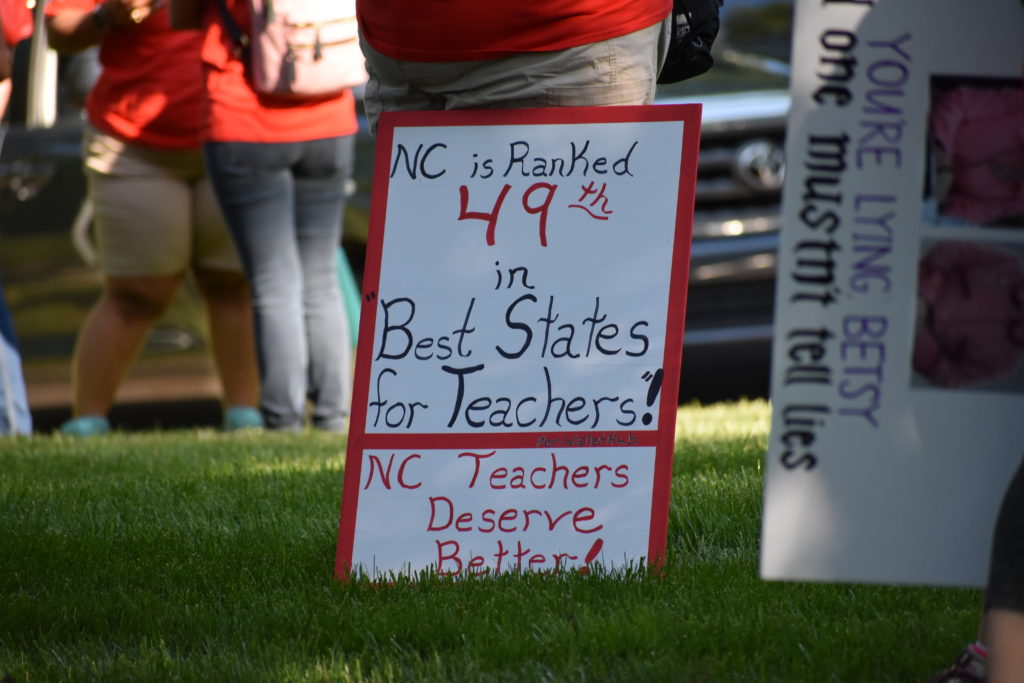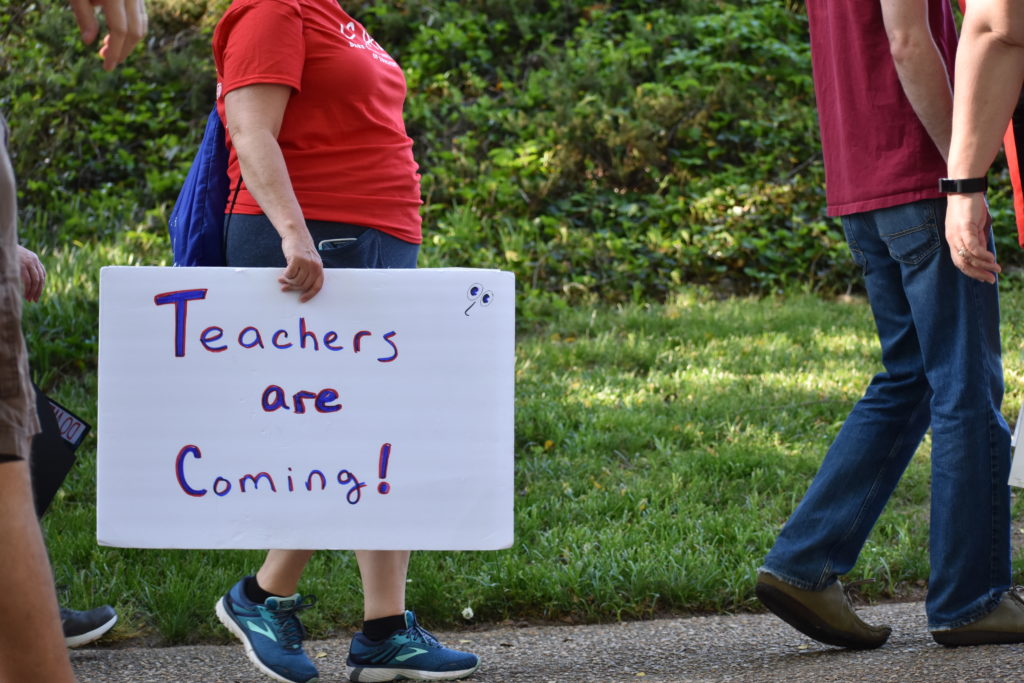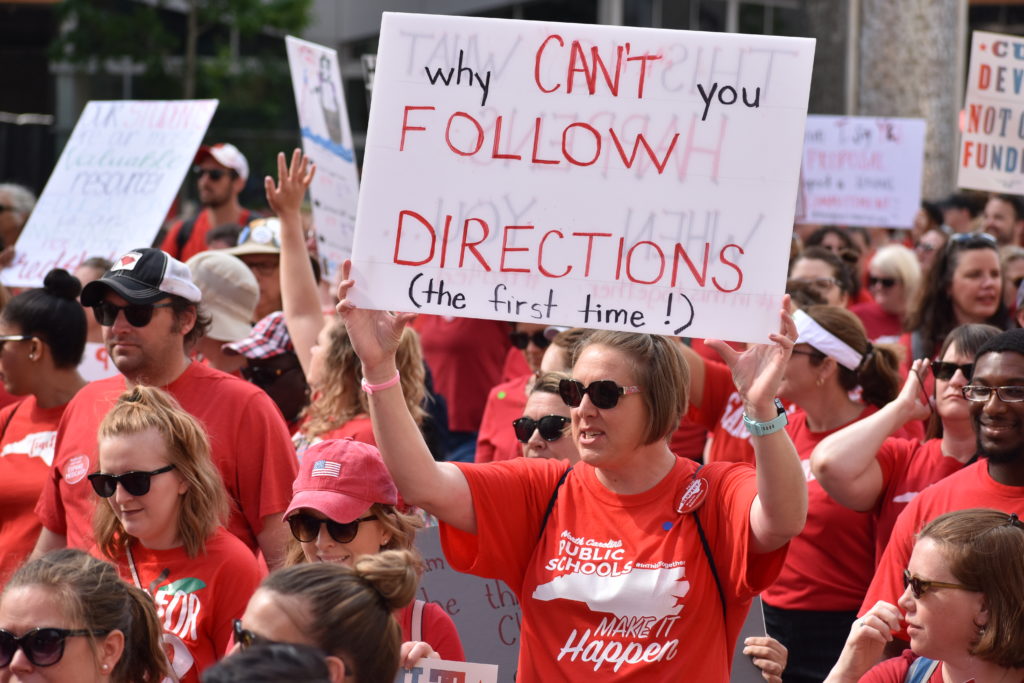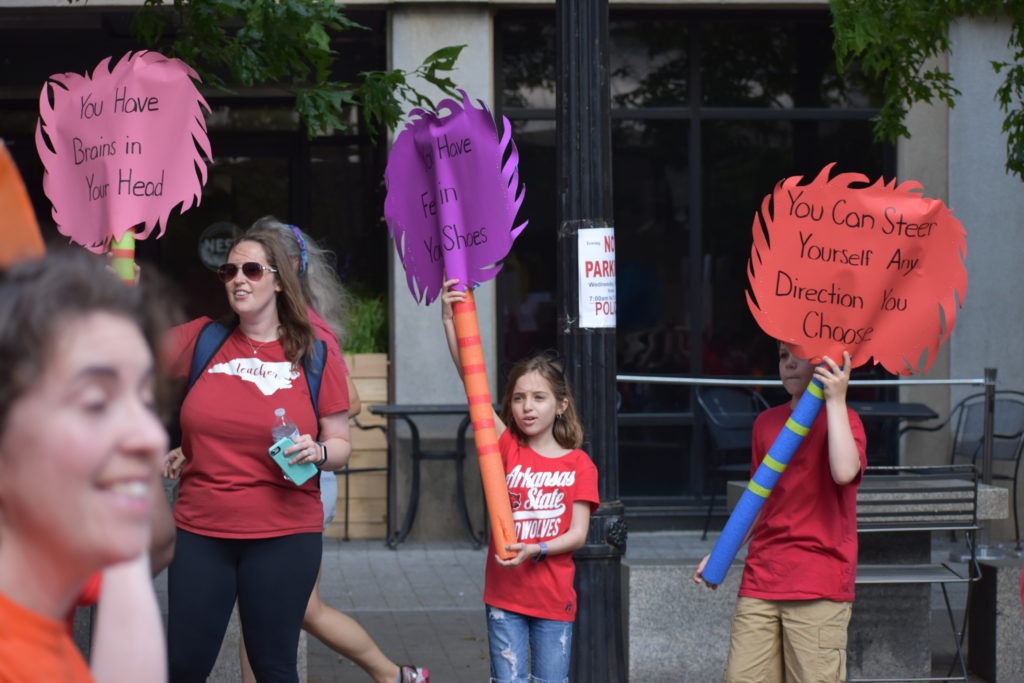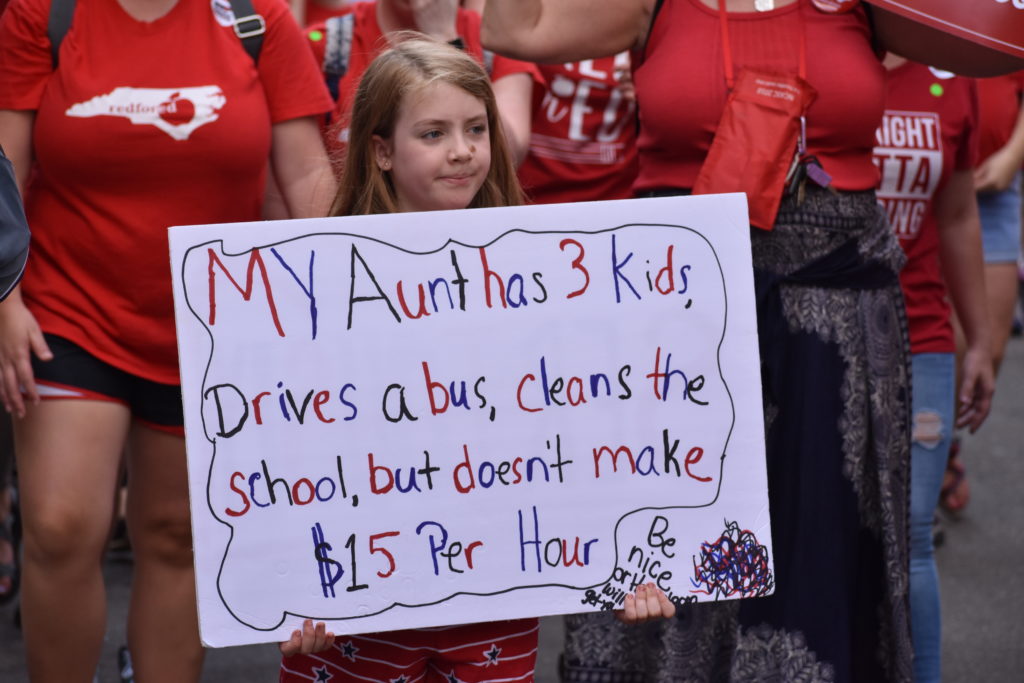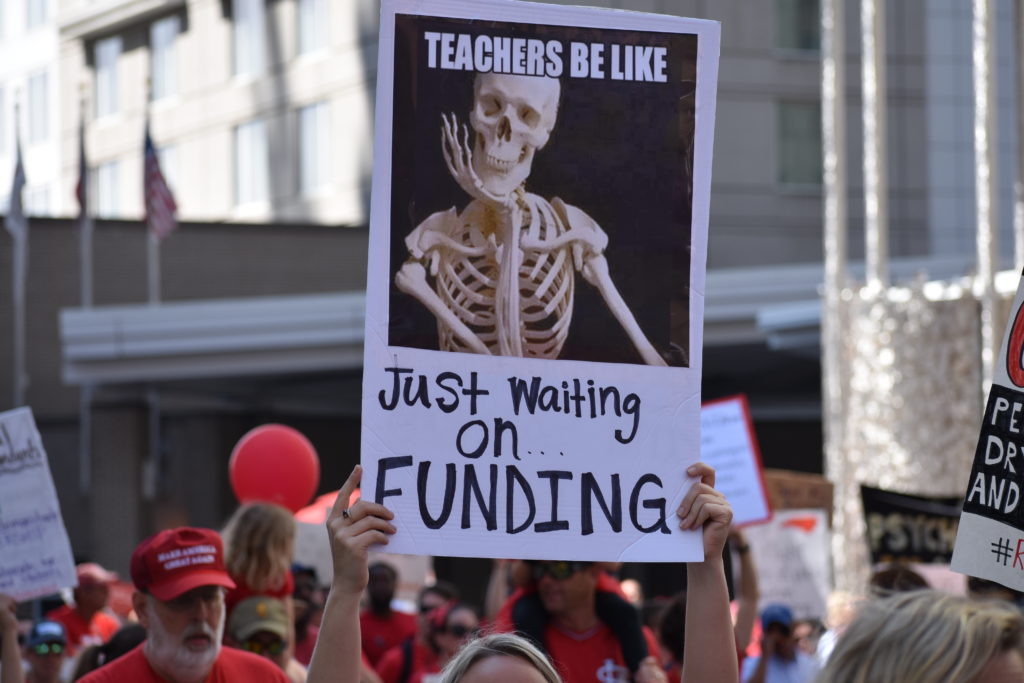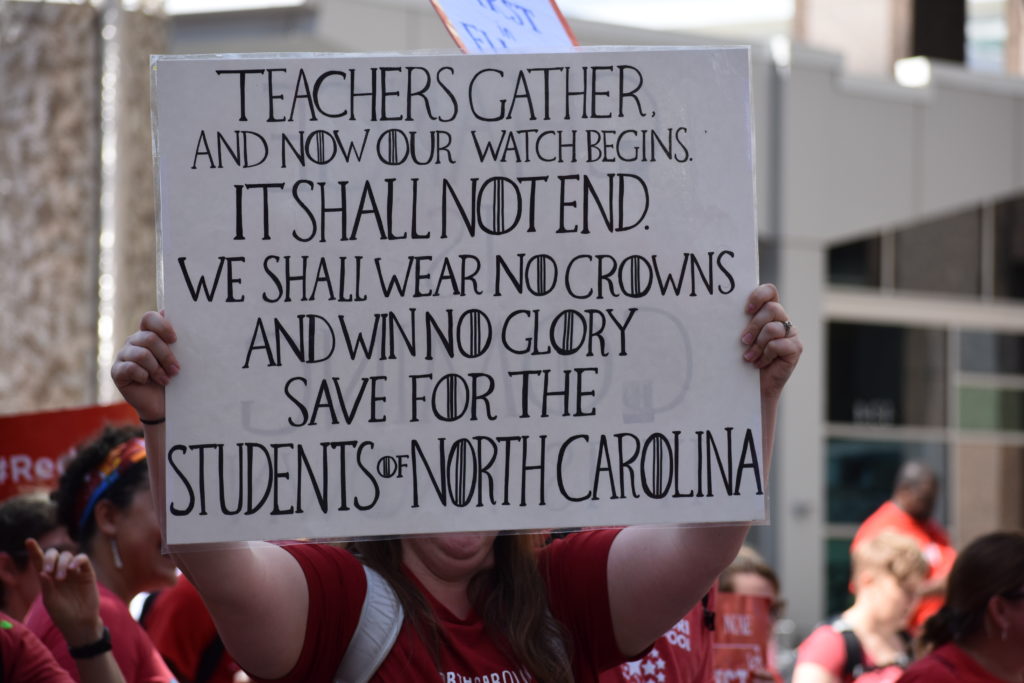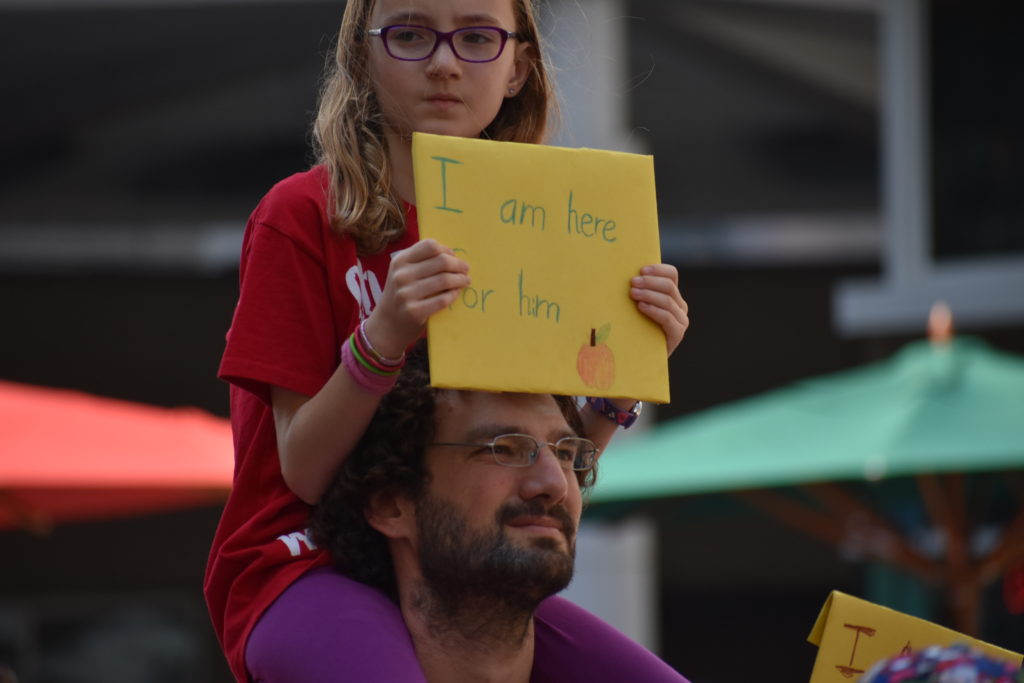
Seeing red
RALEIGH — It only took a brief moment of reflection for the smile Mark Colebrook had been flashing as he extended handshakes and well-wishes to his fellow educators for the better part of Wednesday morning to leave his face.
The business at hand — his reason for traveling to Raleigh to join the North Carolina Association of Educators “Day of Action” — was far too critical.
As he thought about his students at Brogden Middle School, he was at once both energized and at a loss. For him, Wednesday’s protest — an event that saw tens of thousands of teachers, school staff, and supporters march to the Capitol — was about the life and death choices those under his guidance face every day.
“I deal with students on a daily basis … that are contemplating suicide — that have tried it,” he said. “They need some mental health and behavioral health support and we just don’t have it. We’re sharing nurses. We’re sharing social workers and psychologists. We’re so concerned with putting (school resource officers) in our schools when what we really need is help from within.”

Colebrook’s motivation for marching was in line with NCAE’s demands, which include providing “enough school librarians, psychologists, social workers, counselors, nurses, and other health professionals to meet national standards.” The organization also asked the legislature to restore advanced degree compensation, expand Medicaid, reinstate retiree health benefits and provide a $15 minimum wage for all school personnel, raises for non-certified staff, teachers and administrators, and a cost of living adjustment for retirees.
Colebrook was one of more than 200 Wayne County teachers who requested Wednesday off to attend the demonstration, prompting WCPS to close school for students.
Etta Craigwell was another — and, like Colebrook, believes in the value of additional social workers and mental health professionals on WCPS campuses. And as one of two social workers assigned to Goldsboro High School, she should know.
But her reason for traveling to Raleigh was less specific.
“I believe in justice and I’ll fight anything that’s unjust. So I came here to lend my voice to a cause I think is very important,” she said. “The education of students is the education of every single person in this society. It starts right here. If you’re legislators, you’re there because you got an education, so why are you not supporting our educators? We got you to where you are.”
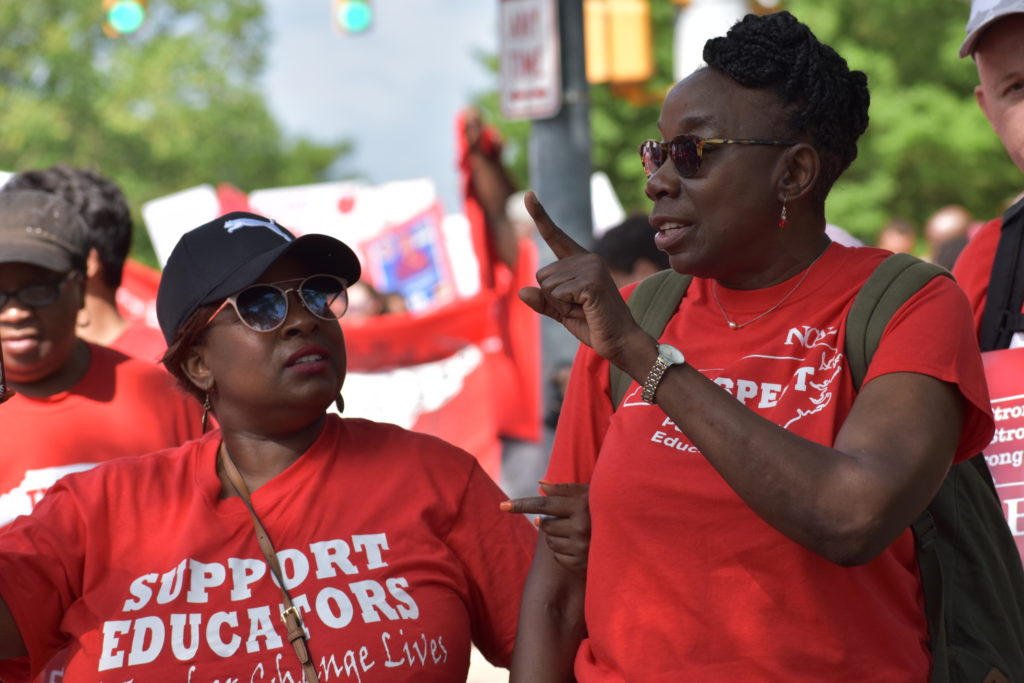
Despite the outrage that sparked Wednesday’s protest, many of the state’s Republican leaders believe North Carolina’s education system is moving in the right direction. In fact, on the eve of the march, House Speaker Tim Moore announced a proposed budget that would include raises for teachers and administrators — and noted that “the last five budgets in North Carolina have increased state employee pay and particularly teacher pay.”
According to Moore, North Carolina has “passed 18 states in teacher pay ranking since 2014,” and the proposed budget would appropriate more than $346 million over the two-year budget cycle to further increase salaries.
“We would bring the average teacher pay in North Carolina to $55,600 by 2020,” he said.
Many who attended the “Day of Action” scoffed at the announcement.
“Just playin’ politics,” said Wake County resident Chester Williams, who said he bought his red “Teachers Lives Matter” shirt before the crowd began their walk to the Capitol in honor of his uncle, a bus driver. “They still ain’t said nothin’ about folks like my uncle makin’ less than a living wage. Think about it for a second. You trust those drivers with your kids’ lives. And you pay them peanuts.”
And the crowd had a response to another state leader who weighed in on the march, Superintendent of Public Instruction Mark Johnson, who said last month in a news release that teachers and school staff should “choose a non-school day” like “spring break and summer break” to protest because “protesting is a right that can be just as effective during non-school hours.”
“Of course he said that,” Maryanne Bowman said after participating in a chant that boasted, “We are not skipping school. Today we teach the Golden Rule.”
•
There were no white boards or desks — no lunch bells or testing — but for at least two families from Apex, learning was happening.
Nine-year-old Ella and her friend Hadley, 9, spent the moments leading up to the march showing off their dance moves as Michael Jackson’s “We’ve Had Enough” blared from the speakers positioned a block away.
The song’s lyrics were a poignant reminder to a few who watched the little girls of just why implementing policy that helps to retain North Carolina educators is so critical.
“We can’t take it. We’ve already had enough. They’ve gotta hear it from me. They’ve gotta hear it from you. They’ve gotta hear it from us. We can’t take it. We’ve already had enough.”
“The kids wanted to come and I thought it was important for them to be a part of this,” Ella’s mother, Laura, said. “You know, they learn about (protests) in history class and this is showing them what participating in a large group effort looks like.”

Ella and Hadley dance before the march. 
Ella and Hadley dance before the march.
But for Colebrook, it was important to operate as though Wednesday was only the beginning.
“I think something like this works, but it needs to be a starting point,” he said. “You know, we did one last year and then in our communities, particularly in Wayne County, we didn’t do anything else.”
So he vowed to continue to advocate for local measures like the city sponsored stipend for Goldsboro High School, Carver Heights Elementary, Dillard Middle and North Drive Elementary that was voted down by the City Council in December. And he preached community and business involvement in the Wayne educational process.
“They have a lot at stake, too,” he said. “You know, nobody in our world has never been affected by a teacher. No matter what job you have, it was fueled by a teacher. So, the teachers are the ones who need our support.”
To see more photos from Wednesday’s march, check out our photo gallery on Facebook @newoldnorth and follow us on Instagram @newoldnorth

A loaded discussion

Fighting for their lives

Goldsboro loses a giant

“I’m a flippin’ hurricane!”
Public Notices — Jan. 4, 2025

Belting it out

Legendary

Final Four!





